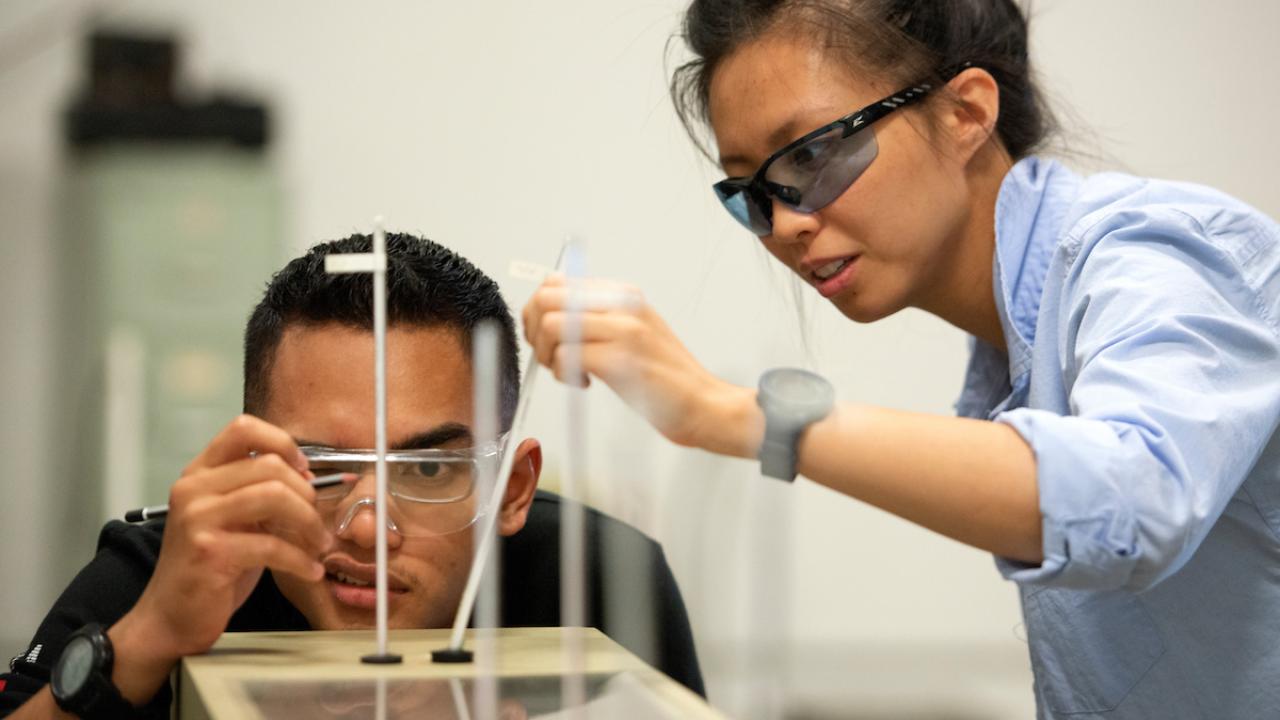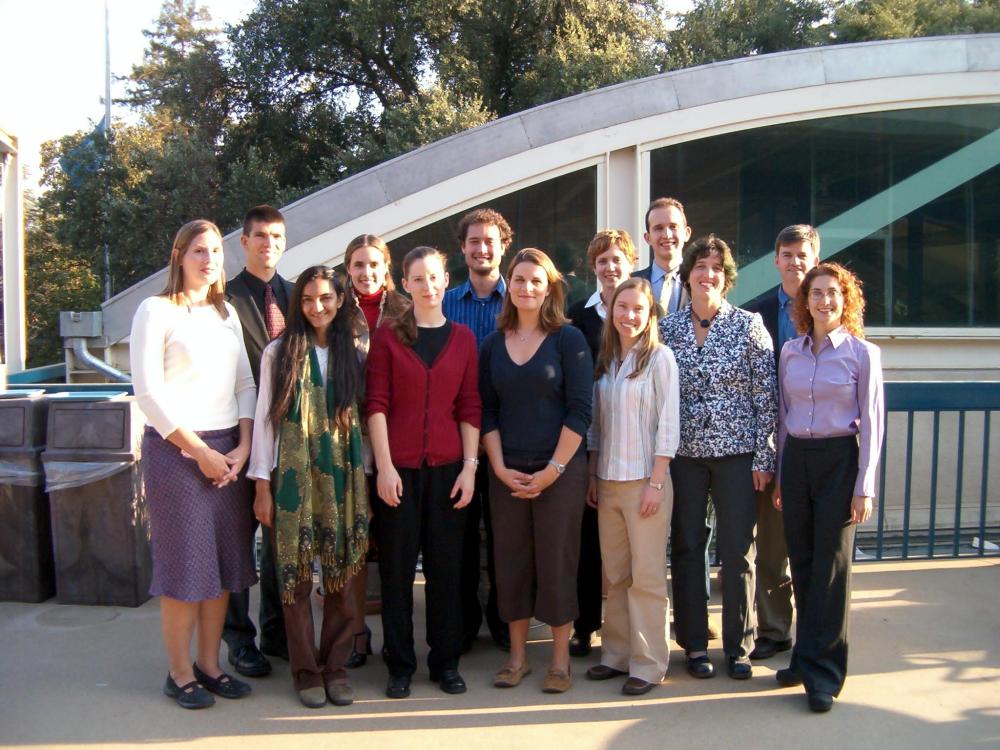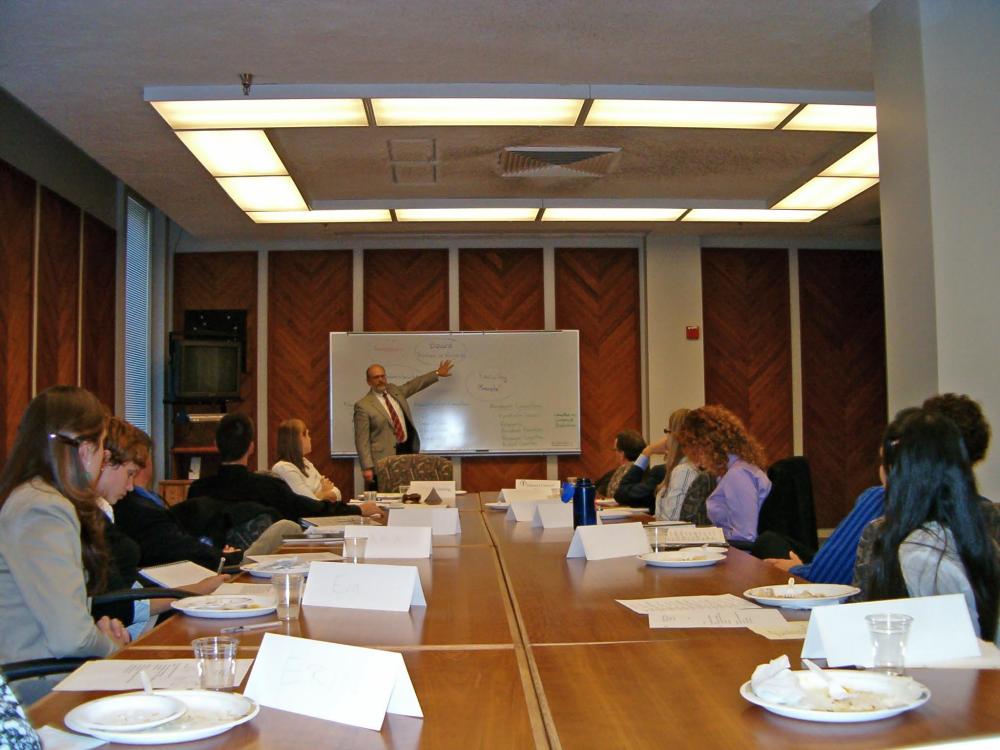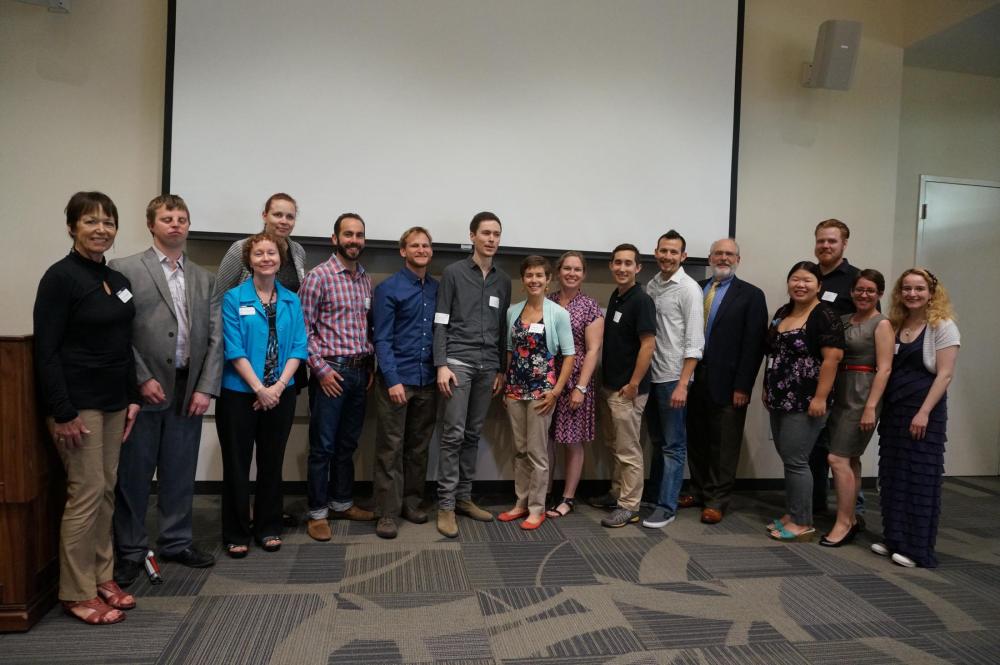
Celebrating 30 Years of Impact
Professors for the Future acknowledges impact on hundreds of alumni and graduate student culture at UC Davis
On June 1, alumni, graduate students, postdoctoral scholars and administrators from Professors for the Future (PFTF) will be coming together to celebrate a milestone for this professional development program within UC Davis Graduate Studies.
PFTF is celebrating its 30th anniversary this academic year. To mark the occasion, GradPathways Institute for Professional Development and Graduate Studies will be hosting a day-long celebration including professional networking events featuring PFTF alumni that all current UC Davis graduate students and postdoctoral scholars are invited to attend.
While the day’s events promise to be an opportunity to reunite and create relationships, the anniversary event is much more than that, according to Teresa Dillinger who is not only a co-director of PFTF, but also an alumna of the program from the 1993-94 cohort.
“PFTF has influenced the lives of hundreds of people throughout its 30 years. It has also created a culture of support within the graduate student community at UC Davis,” said Dillinger, who will be retiring from UC Davis in June 2023, having led PFTF for more than 20 years. “So, in many ways, that is what we are celebrating: the people of PFTF.”
Origins of PFTF
The idea for creating Professors for the Future dates back to the early 1990s, when a group of Latinx students started hanging out in the office of Professor Emeritus Raymond “Ray” Rodriguez who had been newly appointed associate dean of Graduate Studies.
“They had a common story between all of them: they wanted to become professors but had a lot of questions on how to get there. It got me thinking, can we create a program that will help them advance their goals,” Rodriguez said. “From that, we came up with Professors for the Future.”
MRC Greenwood, who was Dean of Graduate Studies at the time, loved the idea. Nationally, there was a push to implement professional development programs for professors, driven by labor shortage concerns in academia.
The plan for PFTF was to teach graduate students the unwritten playbook of how to pursue and be successful in a career in academia. One of the goals driving this effort was to increase the number of underrepresented students who would pursue careers in academia to help diversify the professoriate.
“Being a professor is a complicated job and requires different skills than just teaching and research. We provide a great deal of education around research, writing and science; but, we realized we didn’t teach students about their own institution: How is a university run? What is the role of faculty? What is the difference between working at a research university, a state university or community college,” Greenwood said. “PFTF provides a sort of supplemental education.”
Program grows throughout the decades
PFTF launched in the 1992-93 academic year, and the initial cohort started with six graduate students, before it quickly grew to 10. In the early 2000s, the program also started admitting postdoctoral scholars. Currently, cohorts of 15-17 students are admitted into the competitive program each year. The goal is to double admission in the near future, serving at least 30 students each year.
The steady growth of PFTF made administrators realize there was a need for more professional development opportunities within Graduate Studies. To meet this need, Graduate Studies developed a program that became the GradPathways Institute for Professional Development (GPI). Since then GPI has become a nationally recognized model for innovative professional development programming for graduate students and postdoctoral scholars. The success of PFTF also spurred the creation of a joint professional development program between the GPI, the Internship and Career Center and the Mike and Renee Child Institute for Innovation and Entrepreneurship called Leaders for the Future.

A unique focus on grassroots led academic service projects
Jeffery Gibeling, who served as Dean of Graduate Studies from 2002-2016, said he believes PFTF’s success has withstood the test of time because of the program’s focus on service.
An important component of the yearlong program is that PFTF fellows execute action-oriented, academic service projects. The ideas for the projects were generated by the PFTF fellows based on their graduate student or postdoctoral scholar experience and needs that they identified. A prerequisite of the projects is that they also must benefit all or a large segment of the Graduate Studies community.
“For me it was a great way to hear from graduate students, firsthand, about what was needed; and not just hear from them, but engage them in a way where they help solve the problems they’ve identified,” said Gibeling who is interim vice chancellor of research at UC Davis and has taught a PFTF lecture every fall for the past 10 years. “It helped set the road for what Graduate Studies should do to support graduate students.”
Countless alumni have lauded their experience executing these service projects as being very empowering and teaching them valuable, transferable skills for their careers, regardless if they went into academia or not. It is not a requirement to pursue a career in academia after participating in PFTF.
Many PFTF projects are now permanently embedded into the professional development programs and/or academic calendar at Graduate Studies. For example, all of the following items were PFTF projects:
- the Postdoctoral Research Symposium,
- the Graduate Teaching Community,
- the Writing Partners Program,
- Graduate student orientation and welcome week,
- the Postdoctoral Excellence in Research award,
- resources for graduate student parents,
- and idea for a center for graduate students at UC Davis, which is now Walker Hall.

Career impact on fellows
Countless alumni who participated in the program mention how valuable it was for their careers whether they entered into academia or not. Skill sets that alumni appreciated ranged from knowing how to market yourself to potential employers, navigate a university system, build a lab group, obtain grant funding and execute a large-scale project.
“My experience in the program helped me get to where I am today and shaped my approach to teaching and academia,” said Damon Meyer, PFTF class of 2010-11, who is assistant dean of faculty affairs and pedagogy and associate professor of molecular genetics at California Northstate University.
“The PFTF program was instrumental to me in launching my academic career,” said Andrea Goforth, from PFTF class of 2007-06 who is associate professor of chemistry at Portland State University. “I had some ideas of how to do the non-science parts, which abound in my academic job description, because of the topics we discussed.”
Recognizing the past, new plan for the future
Building on three decades of success, those leading PFTF want to embolden the program’s commitment to diversity, equity and inclusion as it moves forward in the years to come. Ellen Hartigan-O’Connor, associate dean of graduate students and postdoctoral scholars, who currently co-directs and will be leading PFTF during the transition after Dillinger’s retirement, said Graduate Studies sees the potential to leverage PFTF in a way that helps create a more diverse academic pipeline and comprehensively serve the UC Davis graduate student community.
“We want to increase the opportunity for students from diverse backgrounds to see themselves in the professoriate,” Hartigan-O’Connor said. “That will benefit the production of knowledge, help fulfill our charge as a public university and create a professoriate that better reflects the population of California.”
Specifically, Hartigan-O’Connor says PFTF will be seeking out partnerships with community colleges and undergraduate programs at state schools to help demystify academic careers. She also wants to find opportunities for PFTF to support the university’s efforts to become a Hispanic-Serving Institution.
“PFTF is an exceptional program,” Hartigan-O’Connor said. “I am happy to be part of this long tradition and excited about the possibilities for the future.”

